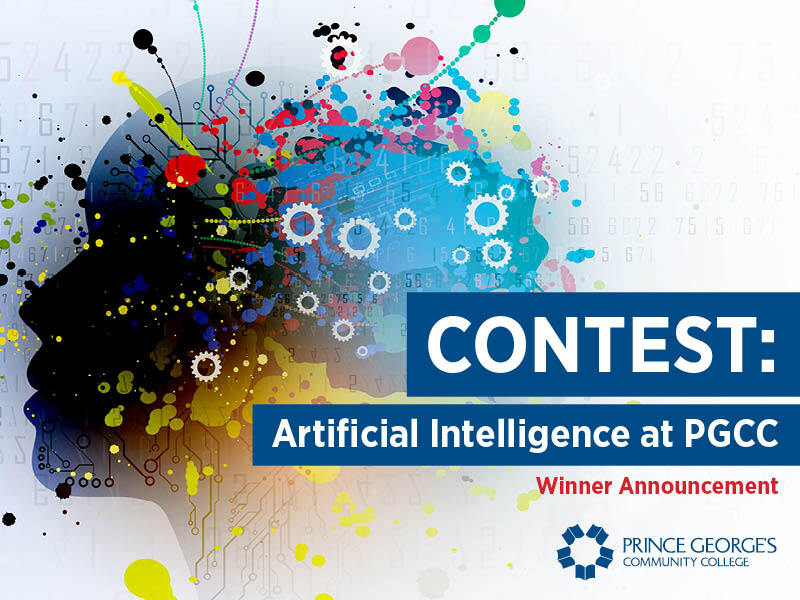
It pays to be innovative! The Prince George’s Community College Office of Communications and National Cyberwatch Center hosted a Collegewide artificial intelligence contest celebrating dynamic teaching and technology use on campus.
PGCC faculty, staff, and students were encouraged to share how they utilize artificial intelligence creatively in their roles. Prince George’s County community members from the AI Taskforce served as judges for the entries.
Judges selected Leslie Miller, Anh Van Nguyen, and Mercedes Kamara from the Academic Advising Department at the College as the grand prize-winning team! Their submission discussed how they use ChatGPT to support their academic support and career readiness efforts for students through Appreciative Advising. Appreciative Advising is the intentional, collaborative practice of asking generative, open-ended questions that help students optimize their educational experiences and achieve their dreams and goals.
“In the C.A.S.H. Program we put Appreciative Advising practices to work,” the team wrote. “We have monthly advising meetings with students and found we needed help making each month memorable and productive. We utilized AI to help us further build out and detail the Appreciative Advising questions advisors can ask students based on the themes that we created within the program.”
The team will receive $1000 to further their artificial intelligence initiatives at the College.
Three selected entries received Contributor Awards of $500: Sophia Colas of the Adult Education Department, Herman Hall from the Technology, Engineering, and Construction Department, and Mary Dutterer from the English Department.
Special thanks to everyone who participated in the PGCC AI contest!
 Above (left to right): Grand prize winners Anh Van Nguyen, Mercedes Kamara, and Leslie Miller were selected by judges for their use of AI in academic advising practices at PGCC.
Above (left to right): Grand prize winners Anh Van Nguyen, Mercedes Kamara, and Leslie Miller were selected by judges for their use of AI in academic advising practices at PGCC.
Stephanie Colas

Stephanie Colas uses AI to streamline class communication during the English for Refugees and Asylees (ERA) program through text messaging.
"By using ChatGPT in this manner, I'm able to work with efficiency while also ensuring that our ERA students have access to accurate and helpful information for their learning journeys at PGCC," Colas said.
Herman Hall

Over the last two years, Herman Hall has used AI with avatars in his information technology (IT) classes, Hardware 1, Hardware 2, Network+, and Cloud Computing. Check out his AI-generated classroom demo.
"I have a subscription with a company that creates avatars, and I've even had one made to resemble myself," Hall said. "I write scripts for these avatars, and the AI animates them to deliver the dialogue. Once the videos are created, I upload them to my YouTube channel and share the links with my student[s] on Canvas. I have an AI video for every subject in the books for all my courses."
Mary Dutterer

Mary Dutterer has implemented an AI policy in her English class where students are allowed to use AI for prewriting work, which includes brainstorming, listing, and outlining. She created a generative outline assignment for students to engage ChatGPT and asked for their feedback about the process.
“Overall, it appears that student use of AI in the planning and prewriting stage of assignments mirrors similar experiences I’ve had using the technology,” Dutterer said. “Sometimes, it can be really useful, sometimes it serves as a springboard but is mostly discardable, and sometimes, it completely misses the mark for what I’m trying to accomplish. Students have the capacity to recognize this and critically assess how the tool can be implemented in their own writing process.”
